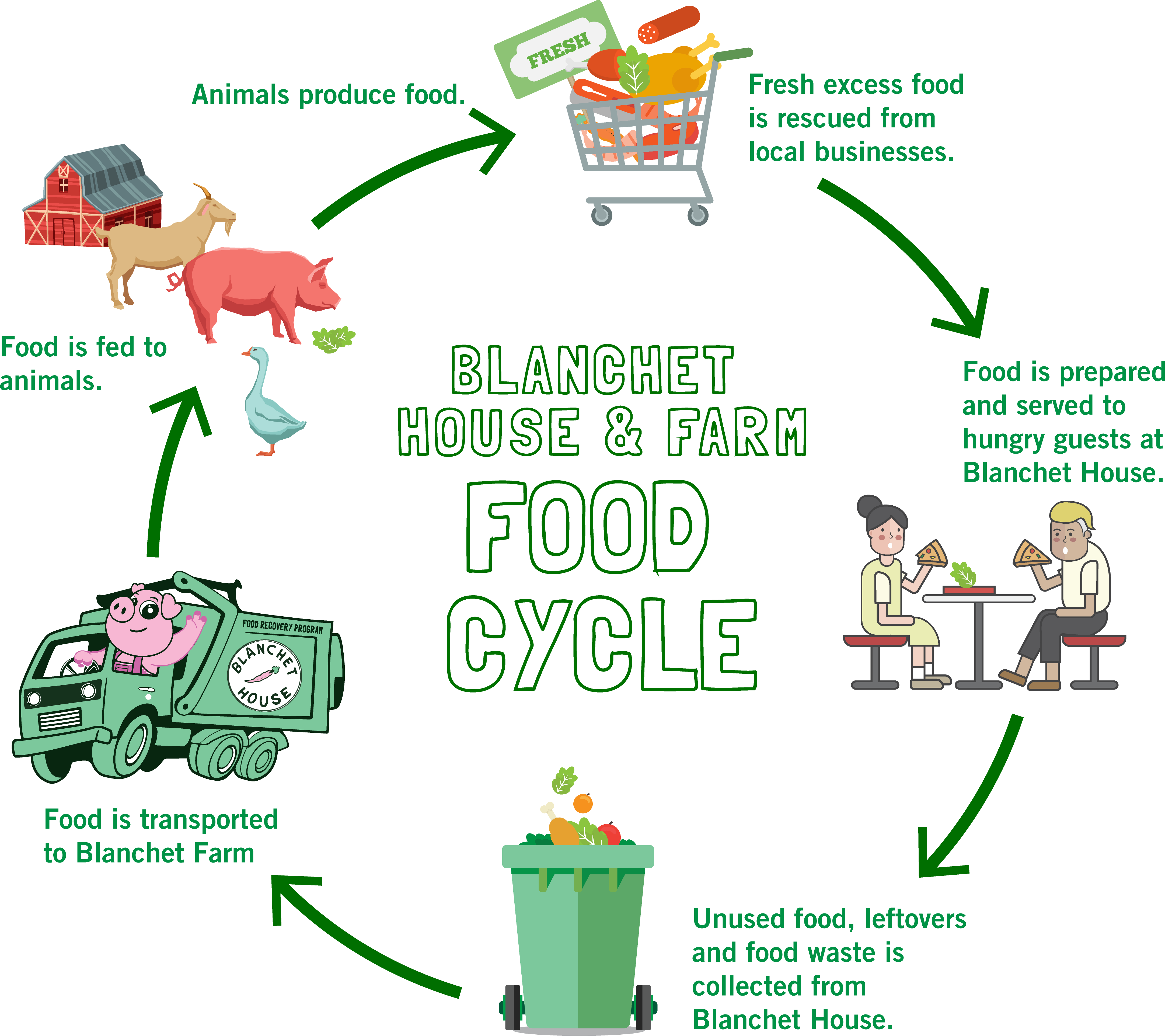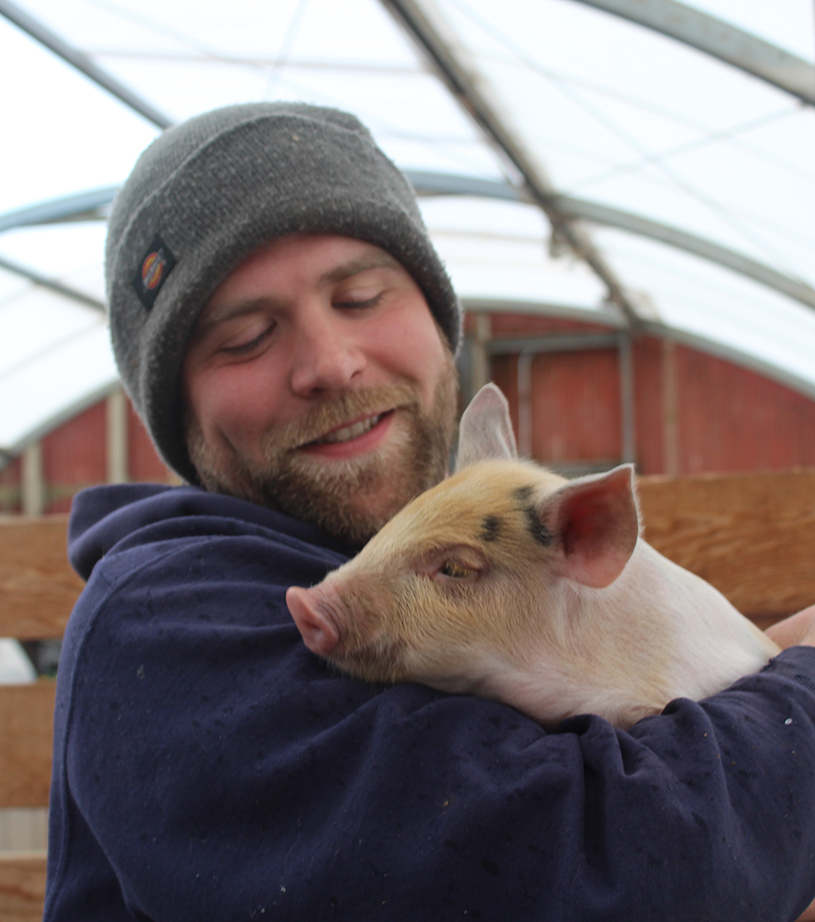Food Rescue: Lessen Food Waste While Reducing Hunger
How we lower our impact on the environment while serving those in most need.
An astounding amount of valuable food—40%—is wasted in America. At the same time, more than 550,000 Oregonians are not secure in their access to food. Blanchet House has developed an innovative system to rescue excess fresh food, get it to people who need it, and keep it from going to waste.
In an average month, we collect and receive more than 30,000 pounds of perfectly good unexpired food from local restaurants, grocery stores, wholesalers, and bakeries. There are many reasons why good food goes to waste, from stores overbuying to the public’s misunderstanding of expiration dates, but we have found a way to use it to benefit our community.
















